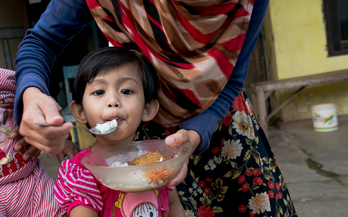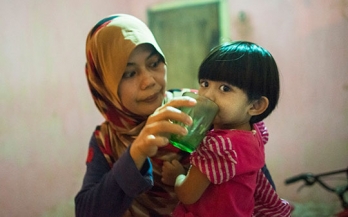Adolescence is a critical period characterized by physical, social and developmental changes that impact on health and eating behavior. Qualitative research was conducted in Java, Indonesia to examine individual, social, environmental and macrosystem factors affecting snacking behaviors in unmarried adolescent girls 16‐19 years of age.
The aim of this study was to assess oil consumption, vitamin A intake and retinol status before and a year after the fortification of unbranded palm oil with retinyl palmitate.
This study aimed to estimate the potential contribution certain processed foods can make to micronutrient intake in Southeast Asia if they are made with fortified staples and condiments.
The objective of this study was to assess the efficiency of the Global Alliance for Improved Nutrition (GAIN) Premix Facility in procuring quality, affordable vitamin A for fortification of edible oil in Indonesia.
Although it is generally accepted that the addition of micronutrient powders (MNPs) to foods causes no or negligible changes to organoleptic properties, there are anecdotal reports of low acceptability of the MNP distributed in Indonesia. The objective of this study was to assess whether the organoleptic properties of micronutrient powders reduce the acceptability of foods if used as recommended.
The objective of this study was to assess a new portable device for the quantitative measurement of iron content of fortified sauces that could be used to control fortification levels.
This paper reports on case studies supported by the Global Alliance for Improved Nutrition (GAIN)-UNICEF USI Partnership Project to investigate processed food industry use of adequately iodised salt in contrasting national contexts.
The objective of this study was to assess the contribution of iodine intake from iodised household salt, iodised salt in instant noodles, and iodine in ground water in five regions of Indonesia.
The objective of this study was to examine the influence of improved information and educational messages on outer packaging of a micronutrient powder (MNP), locally known as “Taburia”, on knowledge and adherence to recommended use.
Household coverage with iodized salt was assessed in 10 countries that implemented Universal Salt Iodization.










